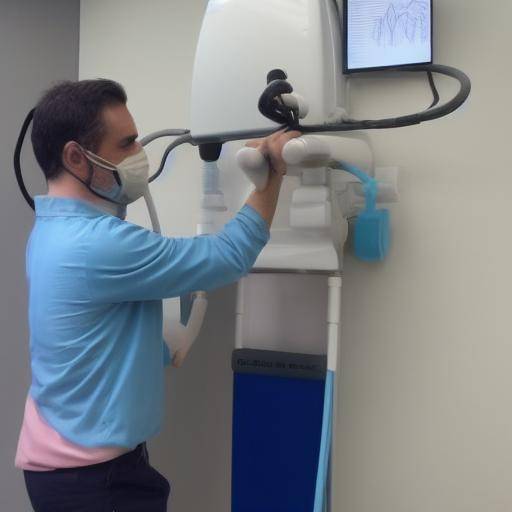
Deep breathing technique is a powerful tool that can strengthen resilience and promote physical and emotional well-being. In this article, we will explore in detail how deep breathing can contribute to increased resilience, as well as its benefits, techniques, and practical advice for its application. We will also address the importance of resilience in our daily life and how it can be linked to physical well-being. Prepare to discover concrete strategies to improve your resilience and well-being through deep breathing.
Introduction
Deep breathing, technically known as diaphragmatic breathing, is a technique that involves inhaling deeply through the nose, breathing into the abdomen and then slowly exhaling through the mouth. It often goes unnoticed in everyday life, but its impact on stress management, anxiety and resilience building is significant.
In this article, we will explore how the mastery of deep breathing technique can help you strengthen your resilience, the ability to face challenges and overcome adversities. In addition, we will examine how resilience can positively influence physical well-being, promoting a healthier and more balanced life.
History and Background of Deep Breathing
Deep breathing has millennial roots in Eastern cultures, where it has been practiced as an integral part of the disciplines of meditation and health care, including yoga and tai chi. Throughout history, many civilizations have recognized the connections between breathing, physical and emotional health, and resilience.
Also, in Western medicine, the importance of deep breathing has been recognized and studied in the context of stress and anxiety management, as well as in physical rehabilitation.
Deep Analysis of Deep Respiration, Resilience and Physical Welfare
Benefits of Deep Breath for Resilience
Deep breathing can play a crucial role in building resilience, as it helps to reduce the activation of the sympathetic nervous system, responsible for the "light or run" response to stress. By practicing it regularly, you can train the body to keep calm, even in stressful situations.
In addition, deep breathing promotes muscle relaxation, lowers blood pressure and improves body oxygenation, which can have a positive impact on recovery capacity against physical and emotional challenges.
Current Challenges and Trends in the Deep Breathing Application
Despite the proven benefits of deep breathing, one of the main challenges in its practice is the lack of awareness and the trend towards superficial and rapid breathing in stressful situations. However, the growing awareness of the importance of mental health and mindfulness practices has led to renewed interest in deep breathing as an effective tool to strengthen resilience.
Technological advances have also allowed the development of devices and applications that guide and monitor breathing, facilitating their practice and monitoring.
Resilience and its Link with Physical Welfare
Resilience is closely related to physical well-being, as greater resilience can lead to better ability to deal with stress and challenges, which in turn can have positive effects on physical health. Numerous studies have shown that resilient individuals tend to have better quality of life and a lower incidence of stress-related diseases.
Similarly, the ability to maintain calm and mental clarity through resilience can promote healthy lifestyles, such as a balanced diet, regular physical activity and adequate rest, which contributes to general physical well-being.
Comprehensive Review of the Deep Breath Implementation to Strengthen Physical Resilience and Welfare
Practical Tips for Integrating Deep Breath into Daily Life
- Practice full breathing awareness: Dedicate a few minutes each day to focus on your breathing, paying attention to each inhalation and exhalation.
- It incorporates deep breathing in moments of stress: Identify stressful situations in your daily life and use deep breathing to restore calm.
- Integrates deep breathing into physical activity: By performing exercises such as yoga or swimming, emphasize a conscious and deep breath, which can enhance the feeling of physical and emotional well-being.
Perspectives of Future Experts and Trends
Experts on mental health and physical well-being agree that deep breathing is an invaluable tool to strengthen resilience and promote integral well-being. In addition, it is expected that in the future the integration of deep breathing into therapeutic practices and well-being programmes will become increasingly common as their positive impact on mental and physical health is recognized.
Comparative Analysis of Deep Respiration, Resilience and Physical Welfare
Although deep breathing, resilience and physical well-being are different concepts, they have significant interconnections. Deep breathing can enhance resilience, which in turn can positively influence physical well-being. Its combination can be a determining factor in achieving a state of balance and strength, both emotionally and physically.
Conclusions and FAQs
Conclusions
In short, deep breathing is a powerful technique that can strengthen resilience and improve physical well-being. By mastering this technique, it can be positively influenced by the ability to face challenges and promote comprehensive health.
Frequently asked questions
1. Can I practice deep breathing if I have breathing problems?
Yes, most people, even those with respiratory conditions, can benefit from deep breathing. However, it is important to consult a health professional to receive personalized guidance.
2. How long should I practice deep breathing to notice your benefits in resilience?
Even a few minutes of regular practice can generate significant benefits. With continued practice, these benefits will increase.
3. Can deep breathing help improve sleep quality?
Yes, deep breathing before bedtime can help relax the body and mind, which can help improve sleep quality.
4. Can deep breathing help in recovery after injury or disease?
Deep breathing can promote relaxation and reduce stress, which can be beneficial during the recovery process. However, it is important to follow specific medical indications.
5. Can deep breathing be practiced anywhere and at any time?
Yes, deep breathing is a technique that can be applied at any time and place, making it extremely accessible.
6. Are there risks associated with deep breathing practice?
In general, deep breathing is safe. However, people with certain medical conditions should consult a health professional before performing intense breathing practices.
In conclusion, deep breathing is a simple but powerful tool that can enhance resilience and promote physical well-being. By integrating this practice into our daily lives, we can strengthen our capacity to face challenges and improve our quality of life in a comprehensive manner.















